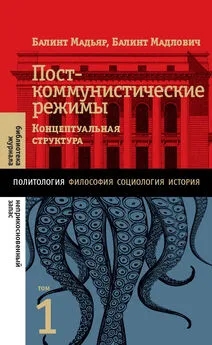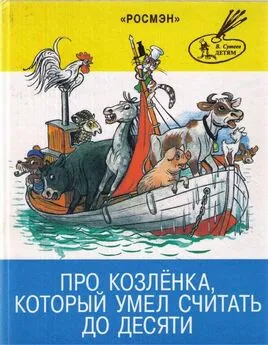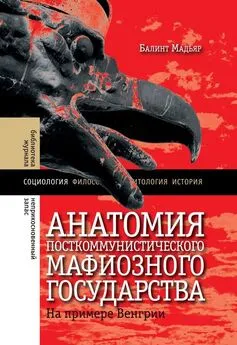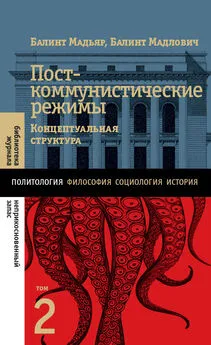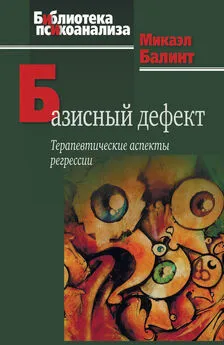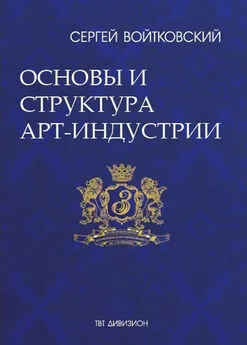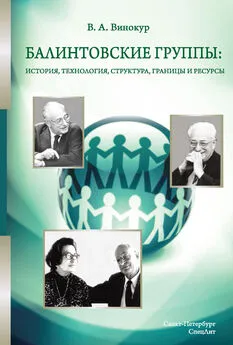Балинт Мадлович - Посткоммунистические режимы. Концептуальная структура. Том 1
- Название:Посткоммунистические режимы. Концептуальная структура. Том 1
- Автор:
- Жанр:
- Издательство:неизвестно
- Год:2022
- Город:Москва
- ISBN:978-5-4448-2013-1
- Рейтинг:
- Избранное:Добавить в избранное
-
Отзывы:
-
Ваша оценка:
Балинт Мадлович - Посткоммунистические режимы. Концептуальная структура. Том 1 краткое содержание
Посткоммунистические режимы. Концептуальная структура. Том 1 - читать онлайн бесплатно ознакомительный отрывок
Интервал:
Закладка:
Конец ознакомительного фрагмента.
Текст предоставлен ООО «ЛитРес».
Прочитайте эту книгу целиком, на ЛитРес.
Безопасно оплатить книгу можно банковской картой Visa, MasterCard, Maestro, со счета мобильного телефона, с платежного терминала, в салоне МТС или Связной, через PayPal, WebMoney, Яндекс.Деньги, QIWI Кошелек, бонусными картами или другим удобным Вам способом.
Сноски
1
Kornai J. Economics of Shortage. Amsterdam: North-Holland, 1980.
2
Kornai J. What the Change of System from Socialism to Capitalism Does and Does Not Mean // Journal of Economic Perspectives. 2000. Vol. 14. № 1. P. 29.
3
World Bank. Transition: The First Ten Years: Analysis and Lessons for Eastern Europe and the Former Soviet Union. Washington: World Bank, 2002; World Bank. Economies in Transition: An OED Evaluation of World Bank Assistance. Washington: World Bank, 2004.
4
Müller M. Goodbye, Postsocialism! // Europe-Asia Studies. 2019. Vol. 71. № 4. P. 533–550.
5
Карозерс Т. Конец парадигмы транзита // Политическая наука. 2003. № 2. С. 42–65.
6
Ledeneva А. The Global Encyclopaedia of Informality. Vol. 1. London: UCL Press, 2018.
7
Merton R. Sociological Ambivalence & Other Essays. New York: Free Press, 1976; Bourdieu P. In Other Words: Essays Toward a Reflexive Sociology. Stanford: Stanford University Press, 1990; Bauman Z. Modernity and Ambivalence // Theory, Culture and Society. 1990. Vol. 7. P. 143–169; Magyar B., Madlovics B. Stubborn Structures: A Path Dependence Explanation of Transitions in the Postcommunist Region // Social Research: An International Quarterly. 2019. Vol. 86. № 1. P. 113–146.
8
Дедуктивный метод предусматривает формулирование общих, оторванных от конкретных примеров теорий, с последующей их проверкой на основании эмпирических данных ( прим. пер. ).
9
North D. Institutions // Journal of Economic Perspectives. 1991. Vol. 5. № 1. P. 97–112; Ledeneva А. Unwritten Rules: How Russia Really Works. London: Centre for European Reform, 2001.
10
Эмический подход предполагает взгляд изнутри, глазами инсайдера, тогда как этический подход подразумевает взгляд снаружи, глазами стороннего наблюдателя ( прим. пер. ).
11
Индуктивный метод предполагает формулирование умозаключений на основе перехода от частных положений к общим, то есть снизу вверх ( прим. пер. ).
12
Fukuyama F. The End of History and The Last Man. New York: Free Press, 1992.
13
O’Donnell G., Schmitter P. Transitions from Authoritarian Rule: Comparative Perspectives. Baltimore; London: Johns Hopkins University Press, 1986; Diamond L., Linz J., Lipset S. M. Democracy in Developing Countries. London: Lynne Rienner, 1989.
14
Carothers T. Democracy Assistance: The Question of Strategy // Democratization. 1997. Vol. 4. № 3. P. 109–132; Idem. Aiding Democracy Abroad: The Learning Curve. Washington: CEIP, 1999.
15
Holmes S. Democracy for Losers // Brave New Hungary: Mapping the «System of National Cooperation». Lanham: Lexington Books, 2019. P. 291–302.
16
Sen A. Democracy as a Universal Value // Journal of Democracy. 1999. Vol. 10. № 3. P. 3–17.
17
Schmitter P., Karl T. The Conceptual Travels of Transitologists and Consolidologists // Slavic Review. 1994. Vol. 53. № 1. P. 173–185; Bunce V. Should Transitologists Be Grounded? // Slavic Review. 1995. Vol. 54. № 1. P. 111–127; Levitsky S., Way L. Competitive Authoritarianism: Hybrid Regimes after the Cold War. Cambridge: Cambridge University Press, 2010.
18
Carothers T. The End of the Transition Paradigm // Journal of Democracy. 2002. Vol. 13. № 1. P. 5–21; Levitsky S., Way L. Competitive Authoritarianism: Hybrid Regimes after the Cold War.
19
См. например, критический метаанализ этих изменений: Cassani A. Hybrid What? Partial Consensus and Persistent Divergences in the Analysis of Hybrid Regimes // International Political Science Review. 2014. Vol. 35. № 5. P. 542–558.
20
См. например, критический метаанализ: Bogaards M. Where to Draw the Line? From Degree to Dichotomy in Measures of Democracy // Democratization. 2012. Vol. 19. № 4. P. 690–712.
21
Bunce V. Should Transitologists Be Grounded? P. 112. Ср.: Sartori G. Comparing and Miscomparing // Journal of Theoretical Politics. 1991. Vol. 3. № 3. P. 243–257.
22
Хантингтон С. Третья волна. Демократизация в конце XX века. М.: РОССПЭН, 2003.
23
Zakaria F. The Rise of Illiberal Democracy // Foreign Affairs. 1997. Vol. 76. № 6. P. 22–43.
24
Хантингтон С. Третья волна; O’Donnell G., Schmitter P. Transitions from Authoritarian Rule: Comparative Perspectives. Baltimore and London: Johns Hopkins University Press, 1986; Schmitter P. Transitology: The Science or the Art of Democratization? // The Consolidation of Democracy in Latin America. Boulder: Lynne Rienner, 1995. P. 11–41 ; Przeworski A. Transitions to Democracy // Democracy and the Market. Cambridge: Cambridge University Press, 1991. P. 51–99.
25
Linz J., Stepan A. Problems of Democratic Transition and Consolidation: Southern Europe, South America, and Post-Communist Europe. Baltimore; London: Johns Hopkins University Press, 1996; Mainwaring S., O’ Donnell G., Valenzuela J. S. Issues in Democratic Consolidation: New South American Democracies in Comparative Perspective. Notre Dame: University of Notre Dame Press, 1992; Diamond L. Developing Democracy: Toward Consolidation. Baltimore: Johns Hopkins University Press, 1999.
26
Schimmelfennig F., Sedelmeie U. The Europeanization of Central and Eastern Europe. New York: Cornell University Press, 2005.
27
Levitz P., Pop-Eleches G. Why No Backsliding? // Comparative Political Studies. 2010. Vol. 43. № 4. P. 457–485.
28
Magyar B. Parallel System Narratives: Polish and Hungarian Regime Formations Compared // Stubborn Structures: Reconceptualizing Post-Communist Regimes. Budapest; New York: CEU Press, 2019. P. 611–655.
29
Collier D., Levitsky S. Democracy with Adjectives: Conceptual Innovation in Comparative Research // World Politics. 1997. Vol. 49. № 3. P. 430–451.
30
Пример метаанализа см.: Bogaards M. How to Classify Hybrid Regimes? Defective Democracy and Electoral Authoritarianism // Democratization. 2009. Vol. 16. № 2. P. 399–423.
31
Diamond L. Thinking About Hybrid Regimes.
32
Croissant A. From Transition to Defective Democracy: Mapping Asian Democratization // Democratization. 2004. Vol. 11. № 5. P. 156–178.
33
Bozóki A. Beyond «Illiberal Democracy»: The Case of Hungary // New Politics of Decisionism. Hague: Eleven International Publishing, 2019. P. 94–98.
34
Bozóki A., Hegedűs D. Democracy, Dictatorship and Hybrid Regimes.
35
Wigell M. Mapping «Hybrid Regimes»: Regime Types and Concepts in Comparative Politics // Democratization. 2008. Vol. 15. № 2. P. 230–250.
36
Gilbert L., Mohseni P. Beyond Authoritarianism: The Conceptualization of Hybrid Regimes // Studies in Comparative International Development. 2011. Vol. 46. № 3. P. 270.
37
Kornai J. The System Paradigm Revisited: Clarification and Additions in the Light Of Experiences in the Post-Communist Region // Stubborn Structures: Reconceptualizing Post-Communist Regimes. P. 21–74.
38
Ср.: Armony A., Schamis H. Babel in Democratization Studies // Journal of Democracy. 2005. Vol. 16. № 4. P. 113–128.
39
Dobson W. The Dictator’ s Learning Curve: Inside the Global Battle for Democrac y . New York: Anchor, 2013.
40
Слово «общинный», выбранное для перевода третьего из типов социального действия, который в оригинале обозначается как communal , следует понимать в широком смысле – как относящийся к тесно связанному сообществу людей, разделяющих некий набор ценностей, культуру или идентичность. Нам хотелось бы избежать коннотаций, отсылающих к ограниченному числу конкретных инкарнаций общинных отношений, получивших название «община», таких, например, как крестьянская община. В понимании авторов социальное действие внутри семьи или дружеского круга также будет являться общинным ( прим. пер. ).
41
Offe C. Political Corruption: Conceptual and Practical Issues // Building a Trustworthy State in Post-Socialist Transition. Political Evolution and Institutional Change. New York: Palgrave MacMillan, 2004. P. 78.
42
North D., Wallis J., Weingas B. Violence and Social Orders: A Conceptual Framework for Interpreting Recorded Human History. Cambridge; New York: Cambridge University Press, 2009.
43
Hale H. Patronal Politics: Eurasian Regime Dynamics in Comparative Perspective. Cambridge: Cambridge University Press, 2015.
Читать дальшеИнтервал:
Закладка:
